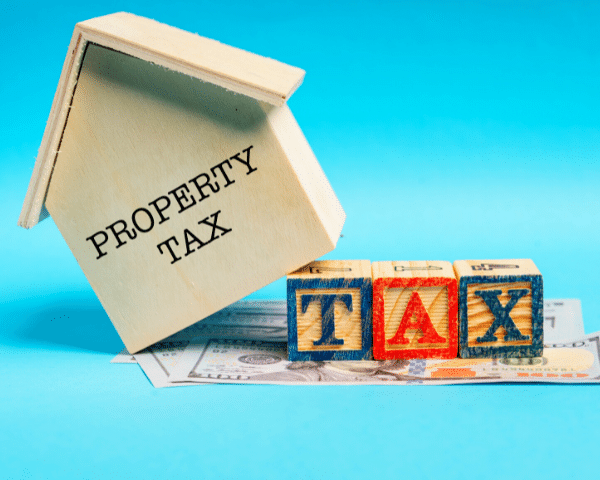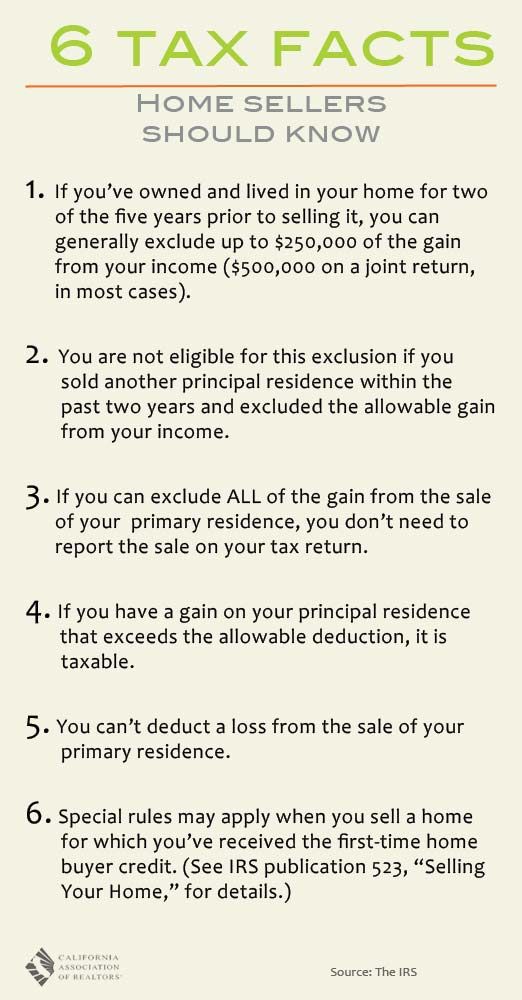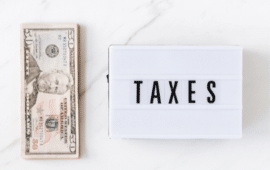
Much like any business, there are expenses when selling a home. It’s important to know the various costs of selling your property namely the real estate agent commission, pre-inspections, home staging, etc. Today, we’re talking about the taxes that impact your home sale.
Please note that we are not accountants or tax professionals and we certainly cannot give anyone tax advice. Additionally, keeping in mind that each person’s tax situation is different, we have provided you with a list of things to consider with respect to taxes and your home sale.
Tax consequences of selling a home
Depending upon whether your home is your primary residence (where you hang your hat) or whether your property is an investment property will change that answer.
- If your home is your primary residence, in the United States, there is something called capital gains—for which you do have to pay taxes. However, you can sell your primary residence and be exempt from capital gains taxes on the first $250,000 if you are single and $500,000 if married filing jointly. This exemption is only allowable once every two years.
- If your home is an investment property (such as a rental unit) and you are cashing out and not purchasing another property to replace it, then there will be tax consequences—capital gains taxes that you will have to pay.
- If you bought a home in order to “flip it”—refurbishing it and selling it for a higher price just a few months later—then the capital gains tax is called a “short term capital gain”. And, short term capital gains taxes are higher than long term capital gains. Generally, short term capital gains are for anything held less than one year.
There is one great option for investment properties if you are selling and buying another. Learn about it here. If you need a reliable property management company in Escondido please contact Broadpoint Properties located in Escondido CA.
Documentary Transfer Tax
All counties in California have the same tax amount, which is 0.11% of the value. That’s $550 for a $500,000 home, for example. It is not specified though who is responsible for paying this so the usual practice is it’s split in half with the buyer.
Outstanding Property Tax Bills
Established by California’s Proposition 13 passed in 1978, the base tax amount is calculated by multiplying the property’s assessed value by the standard tax rate of 1%. The property’s assessed value is factored based on the last time that your home was sold or the sales price listed on the deed.
To illustrate, say your home is valued at $350,000 the last time it was sold, get 1% of that and that’s the amount you pay annually – that’s $3500/yr or $291/mo.
Over time, the property’s assessed value is adjusted upward as properties appreciate. In San Diego County, for instance, the average annual appreciation is 0.73%. Learn more about property taxes here.
For instance, if you sell your home in February 20th during the property tax period January 1st to June 30th and you haven’t paid yet, you need to pay the buyer the taxes from January 1 to February 20. Common practice is prorating the fees you’ve accumulated to figure out what you owe.
Other note-worthy tax facts:

Image from California Association of Realtors®
For more information on property taxes in San Diego county, go here.
It is always best to consult with both a real estate professional and a tax professional in order to determine the best course of action for you. When in doubt, please feel free to contact the agents at Broadpoint Properties.



